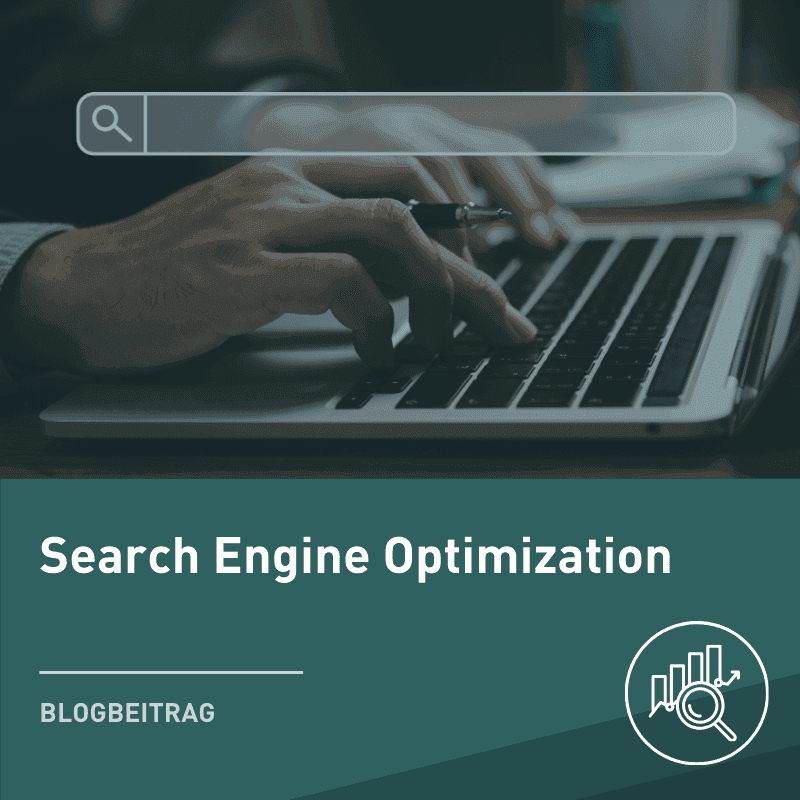
Blog Post
SEO

Nadine
Wolff
published on:
14.10.2021
Gendering - A Good Idea from an SEO Perspective?
Table of Contents
Table of Contents
Is Gendering a Good Idea from an SEO Perspective? Gender-inclusive language is a topic that occupies many people. According to a survey by Infratest, only 26% of respondents have a positive opinion on gender-inclusive language, while 36% completely reject it. In contrast, 35% of companies, according to a Randstad-ifo survey, use gender-neutral language in their external communications.
The website is an important part of external communication. Since many companies optimize their texts for search engines, the question arises: to what extent does gender-sensitive language affect rankings, and how does it influence SEO performance? Our SEO Warriors reveal the current state and tips in this article.
What is "gender-sensitive language"?
German is a very binary language, with personal titles coming in both male and female forms (example: expert vs. Experte and Expertin, experts vs. Experten and Expertinnen). Previously, the "generic masculine" was popular - the male form was used as a general term, implying all non-male persons without explicitly addressing them.
Gender-sensitive language is not a new topic, even if the public attention it currently receives from the media and politics suggests otherwise. It is about using language that includes everyone - challenging the male "default" and replacing it with inclusive language. Depending on the interpretation, this means addressing both men and women - or additionally people who do not fall within this gender binary.
Since the end of 2018, it is possible to register one's gender not only as female and male but also as "diverse". Depending on which forms of gender-sensitive language are used, these people are either included or not.
What are the options for gender-sensitive language?
There is no uniform guideline for how gender-sensitive language should look. Over the past few years (even decades), various forms have emerged, none of which have clearly prevailed:
Including both women and men:
Mentioning both female and male forms (Radfahrerinnen und Radfahrer)
Inner capital I (RadfahrerInnen)
Slash (Radfahrer/innen)
Including all genders:
Gender gap (Radfahrer_innen)
Colon (Radfahrer:innen)
Gender asterisk (Radfahrer*innen)
Additionally, there are neutral formulations, for example:
Cyclists
People who ride bikes
Bike-riding people
Why and when is "gendering" important?
As mentioned, opinions on gender-sensitive language vary widely. As does its implementation. Critics see the German language at risk or believe that mere language change doesn't create equality, and there are more important issues. However, language certainly has the potential to change reality. There are various studies on how language influences perception; for example, the FU Berlin found that language affects children's perception of professions. A sensitive approach to the topic is therefore appropriate and important.
Which approach is the best choice for companies depends on various factors, such as the target audience and the company’s positioning on the topic. If you're unsure, you can consider these questions beyond the SEO aspect:
What values does your company want to represent (conservative, traditional, modern, inclusive, etc.)?
What is your target audience, and how do they view the topic?
What is common in your industry?
As the topic is very polarizing, it has the potential to appeal to or repel people just by how language is used. A target group that highly values inclusion will, for example, feel addressed by a website using inclusive, gender-sensitive language, while a more conservative audience might even consistently avoid purchasing from a company that uses gendering in their communication.
What is the problem for search engine optimization?
How does Google respond to gendering in texts? Does the use of gender-specific terms alone influence visibility? There is no clear answer so far, so we try to approach the topic.
The generic masculine as a standard
Since the generic masculine has been in use for so long and is generally the shortest form of a designation, it is used significantly more often in searches than female forms or gender-inclusive terms. Some examples:
Hairdresser Berlin: 21,600 searches/month
Female hairdresser Berlin: 20 searches/month
Cardiologist Berlin: 7,700 searches/month
Female cardiologist Berlin: 40 searches/month
Tax advisor Berlin: 7,500 searches/month
Female tax advisor Berlin: 80 searches/month
Conversely, there are only a few counterexamples, but in the majority, the male form is more frequently searched:
Lawyer Berlin: 2,200 searches/month
Female lawyer Berlin: 2,300 searches/month
In SEO, the general rule is to optimize for the keywords that are relevant and most frequently searched. Certainly one of the reasons why even female service providers often use the male form.
Google's "Gender Bias"
What does "Gender Bias" mean? "Bias" translates to German as "Voreingenommenheit." In relation to Google, it means that Google's search results represent and promote certain stereotypes. Even when specifically searching for female forms for certain services, Google shows male individuals in the results or even suggests using the male form instead.
An example is a search for "female hairdresser Berlin": Google suggests "Did you mean: hairdresser berlin," and for "female stylist Berlin," Google asks, "Did you mean stylists berlin;" similar suggestions occur for "female surgeon Berlin" and "female electrician Berlin." This treats the female forms as if they are spelling errors, where the correct spelling is suggested. For other searches, like "female orthopedist Berlin" or "female cardiologist Berlin," there are no "correction suggestions." For gender-inclusive searches with an asterisk or colon, Google also interprets them differently; it doesn't seem as though the algorithm has understood "gendering" and the intention behind it.
What does Google say about gendering?
In the Google SEO office hours on 10.06.2021, John Mueller, Senior Webmaster Trends Analyst at Google, was asked about gendering. The answer: He did not know the current situation at Google, but generally, they try to identify synonyms. Google generally tries to wait and react to user behavior. So if gender-specific terms are searched more frequently, Google would respond to them.
What is the reality?
The above examples of various searches and Google's different suggestions do not show a unified picture. The results are equally diverse. For some professional titles, only female service providers appear in the Map results, while aggregators and directories appear in the organic search results. For other keywords, even when searching for the female form, results for female service providers prevail.
A comparison of the Title Tags in the results shows no pattern - sometimes male titles are used by women and still appear in searches for female service providers, sometimes they are in the female form. Searches for gender-inclusive forms with a colon or asterisk result in, for example, medical practices in the results.
There is no unified result, but one thing is clear: Google partly considers female titles and gender-inclusive terms as mistakes - probably because these terms are so rarely searched for - and still displays male service providers. Should search behavior change, the algorithm is likely to adapt sooner or later, providing results that are more sensitive to the actual query.
In many areas, it is advantageous to use the male form, even when it isn't accurate. Gender-inclusive language does not seem to be a good idea in SEO. So what options do companies have if they want to gender but fear disadvantages in ranking?
Tips for gender-sensitive language in SEO Content
How can you handle the use of inclusive language without fearing SEO disadvantages?
Does gendering matter for your keywords?
If you have answered the questions about your company values and target group and have decided in favor of gendering: does this decision matter for your keywords? How many terms in your keyword sets would be affected? How many terms would change? You might find that nothing or only a little changes, making the risk low.Optimize for alternative terms
There are usually alternatives to personal designations, such as the services themselves (for example, cardiology instead of female cardiologist) or the problems these services solve. Be creative and consider all the terms that can describe what you want to express. Check the monthly search volume - often, more general terms are even more in demand.Use different spellings
If you find it impossible to manage without the generic masculine, you can offset this by using different spellings and thus including other genders. Switch it up and use multiple terms or the most searched word in crucial spots.Further optimization measures
Keyword usage in texts is just one measure for greater visibility and better rankings. Use all the tools available to you - all technical and content optimization measures, consider your usability, and elements like images, internal links, and markups. OffPage SEO can also make a significant difference. The terms you specifically use should primarily reflect how you want to present yourself and whom you wish to reach. Think primarily of your users, less of search engines - an approach that is generally sensible in SEO copywriting.
Support for Your Content Marketing
Regardless of whether you gender or which form of gender-sensitive language you choose - the conscious use of terms and the creation of optimized content are important. Do you feel that your content could perform better? Our SEO Warriors are happy to support you, from keyword analysis to the planning of content that increases your visibility and revenue. Get in contact with us without obligation!
Did you enjoy the blog? Recommend it now!
AUTHOR

Nadine
Wolff
As a long-time expert in SEO (and web analytics), Nadine Wolff has been working with internetwarriors since 2015. She leads the SEO & Web Analytics team and is passionate about all the (sometimes quirky) innovations from Google and the other major search engines. In the SEO field, Nadine has published articles in Website Boosting and looks forward to professional workshops and sustainable organic exchanges.


